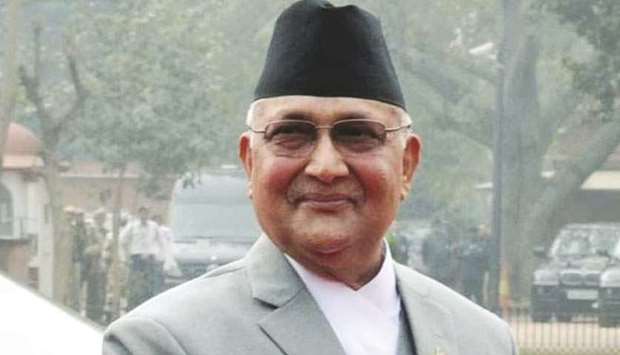Oli, widely regarded as pro-China, was sworn in as Nepal’s prime minister for the second time last month, weeks after his Left alliance with the Communist Party of Nepal-Maoist (CPN-Maoist) swept the parliamentary polls.
China and Nepal have been stepping up efforts to improve road connectivity while speeding up plans to build a railway line connecting to Nepal’s border after a transit trade treaty was signed in 2016 with Beijing.
Speaking at a function organised in Kathmandu to release a book on Nepal-China relations at the prime minister’s official residence in Baluwatar, Oli said, “Relations with all the friendly nations will be based on equality. We emphasise on friendship, our policy is of friendship, and hence it cannot be unequal and unbalanced. It will be equal.”
Oli, on a different note, said any matter that disturbs the newfound change and peace in Nepal is not acceptable.
“Efforts to disturb social harmony shall not be tolerated,” he said, adding that efforts would continue to minimise inequality while discrimination would be ended.
Oli was hinting on a statement by the European Union that the recently-concluded parliamentary and provincial elections in Nepal lacked
transparency.
The 28-member political and economic bloc had also raised questions on the fairness of electoral process, an allegation rejected by Nepal.
Foreign Minister Pradeep Kumar Gyawali said international relations will be expanded in a balanced manner, noting that relations between Nepal and China will scale new height in the days to come.
Former foreign minister Sujata Koirala said Nepal and China have always enjoyed profound relations and that China has never interfered in Nepal’s internal affairs.
China’s ambassador to Nepal Yu Hong said that the multi-billion Belt and Road Initiative is an opportunity to expand China-Nepal relations and
mutual collaboration.
The book consists of 25 articles by Oli among others.
In 2016, Oli had accused India of supporting the Madhesi movement, a charge denied by India.
The Madhesis, largely of Indian-origin, launched a violent agitation in September 2015 when the new Constitution was announced, saying the statute failed to address their concerns.
Nearly 60 people had lost their lives during the six-month-long agitation that strained the Indo-Nepal ties.

